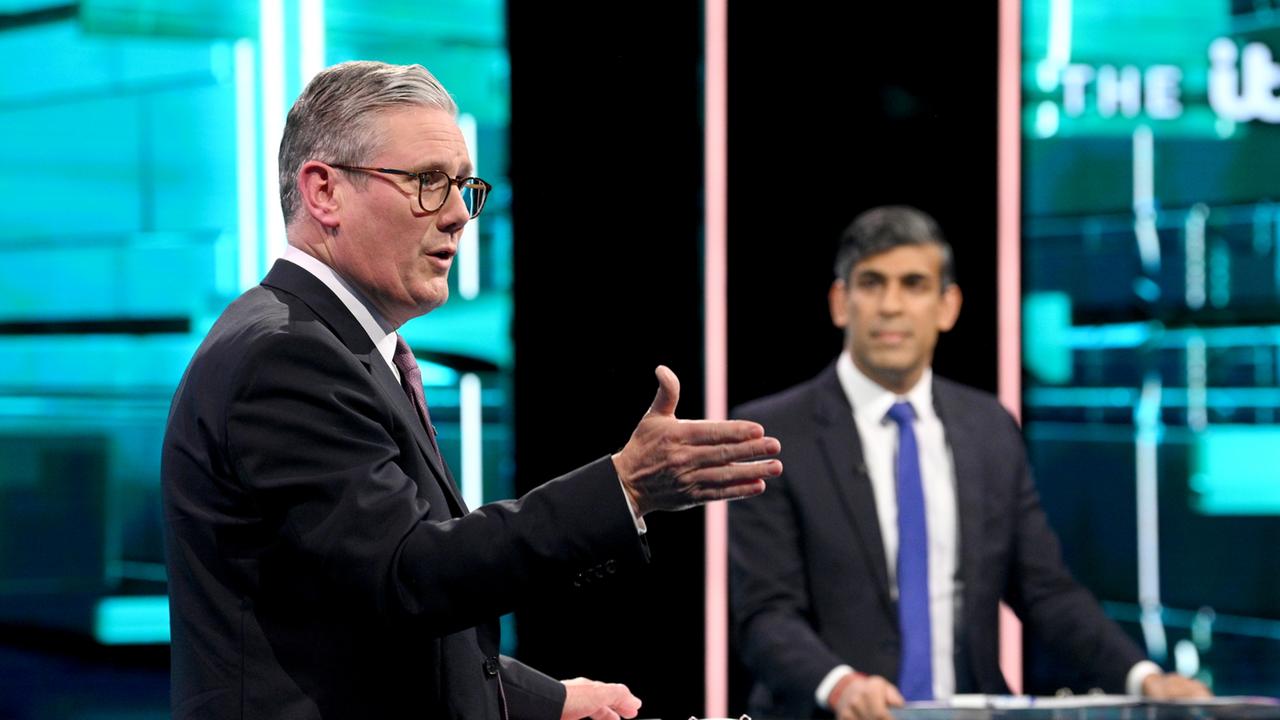Prime Minister Sunak took an unusually aggressive approach to his challenger Starmer in the first TV debate before the British general election. Starmer found no antidote. What does this mean for the election campaign?
Many Britons had hoped that the TV debate would provide an answer to how the Tories and Labour intend to reduce the exorbitant cost of living, as this is currently their most pressing issue. One example of this was viewer Paula, who said that she cooks for the whole week on Sundays so that she only has to turn the oven on once.
But neither Sunak nor Starmer could answer the question of what would happen next. Sunak repeated like a mantra that his plan for the economy was working – even though the viewer had just reported the opposite. He promised further tax cuts and yet could not make it plausible how the welfare state would function with even less.
But Sunak managed to put Starmer on the defensive by attacking him with a perennial Tory tactic: the accusation that Labour would raise taxes sharply after the election.
Starmer had a conspicuously difficult time refuting this and tried to portray the extremely wealthy Sunak as aloof – as someone who does not understand the situation the British are in.
In the end, not only is there little concrete information left from the debate on this question. Perhaps this was also due to the format of the TV debate, which only allowed for short answers. What the two candidates stand for was therefore only partially clear.
Core topic: migration
Sunak has not only been focusing on the issue of migration during the election campaign. A year and a half ago, he came into office with the promise to stop “small boats”, i.e. asylum seekers who come to Great Britain via the English Channel. So far, he has not kept his promise.
Today, this number is at a record high. People are dying on the route. That is why Sunak is relying on deterrence. Asylum seekers are to be flown to Rwanda so that their applications can be processed there. A plan that is extremely controversial in Great Britain and has so far been repeatedly stopped by the courts.
Surprisingly, Starmer recently appeared open to hearing applications from asylum seekers in third countries and confirmed this change in the TV debate – with the caveat that the plan must be compatible with international law. However, many lawyers doubt this.
Sunak, on the other hand, received conspicuous applause when he announced that he would withdraw the European Convention on Human Rights if it were an obstacle to his Rwanda plans. Sunak no longer wants to be held back by international treaties – at least part of the audience supports this.
But Starmer also received approval for his promise that as Prime Minister he would abide by international treaties, because Britain should not be an outsider on the world stage. This is another reason why he wants to work more closely with the EU – here the differences between the opponents became clear.
The question of origin
The question of origin and living conditions plays a conspicuous role in this election campaign, and this is not least due to the great wealth of the Sunak family, whose assets exceed that of the king. Both politicians try to emphasise their humble origins. But is this convincing?
Sunak used to go to an expensive private school. Starmer, on the other hand, can credibly talk about social hardships, about the fear of reminders when the postman comes. His father worked in a factory, his mother was a nurse. When asked whether he would consider private treatment for a sick family member, he answered irritated but calmly – his wife, sister and mother all worked for the NHS. He does not use private health insurance.
Sunak, on the other hand, answered the question with a yes, which is hardly surprising. It hardly fits with his attempt to appear close to the people. The National Health Service (NHS), which is in ruins, will remain a sensitive issue in the election campaign.
Open antipathy
Sunak and Starmer are not opponents who would enjoy a beer together afterwards – there is open antipathy between them. This was also evident in the TV debate. Sunak used an aggressive strategy, constantly interrupting Starmer and thus getting on his nerves until at some point he just rolled his eyes.
But Starmer rarely managed to take the offensive and counter Sunak's accusations. While he attacked the Tories' overall record in recent years, Sunak attacked him personally.
A YouGov snap poll after the debate seems to be working for the latter: 51 percent of respondents said Sunak had done the best, while Starmer got 49 percent. Considering that the Conservatives are miles behind Labour in the Sunday polls, this is quite a success for Sunak.





